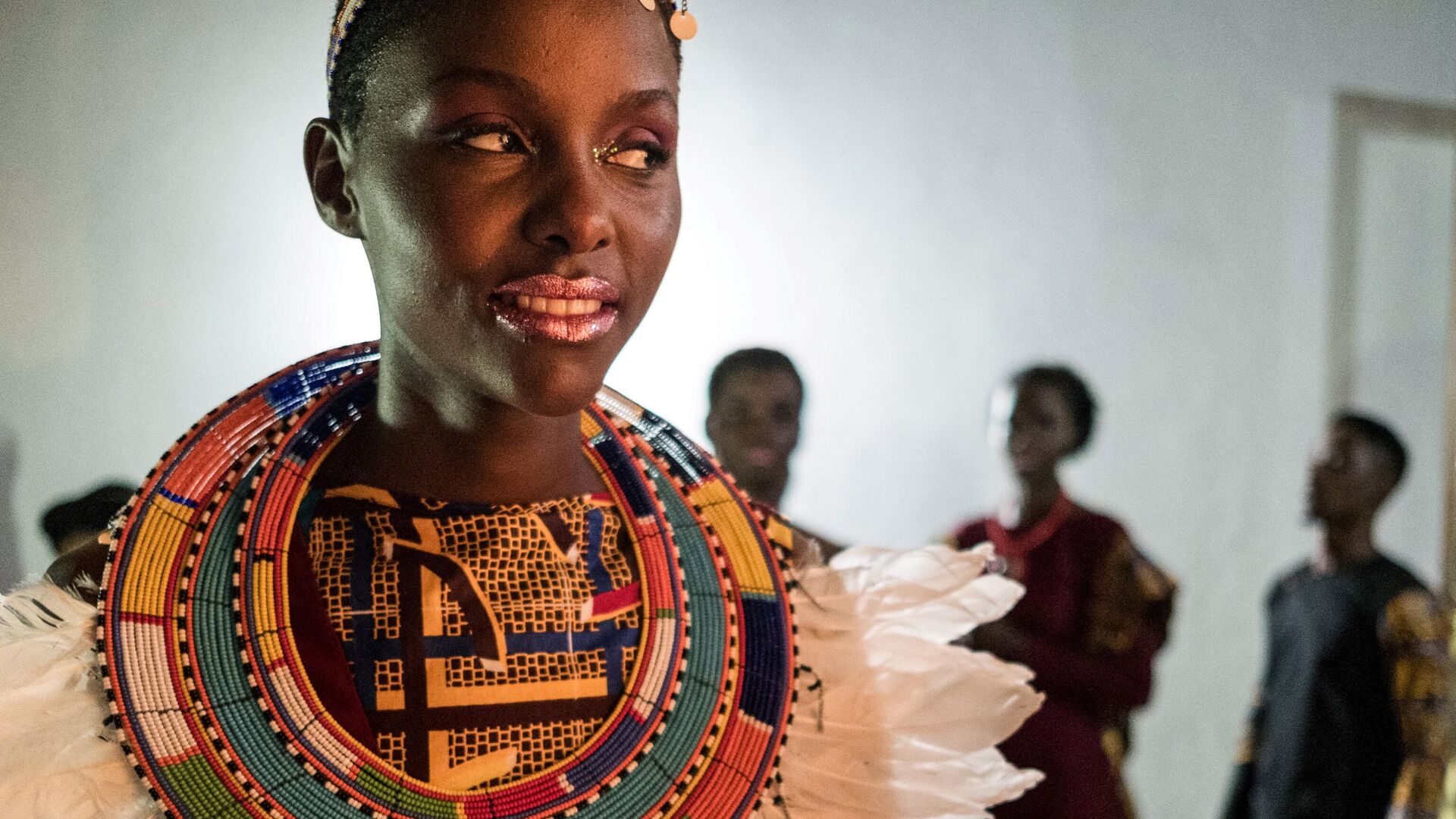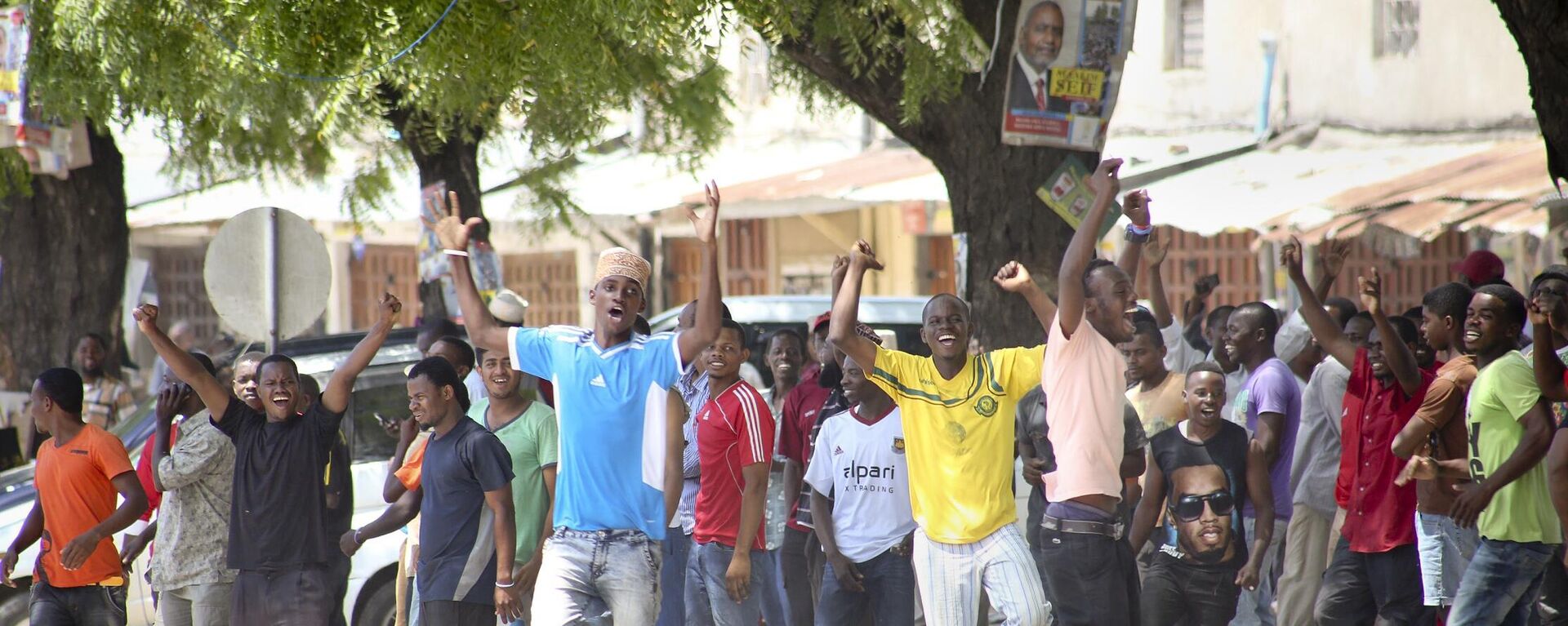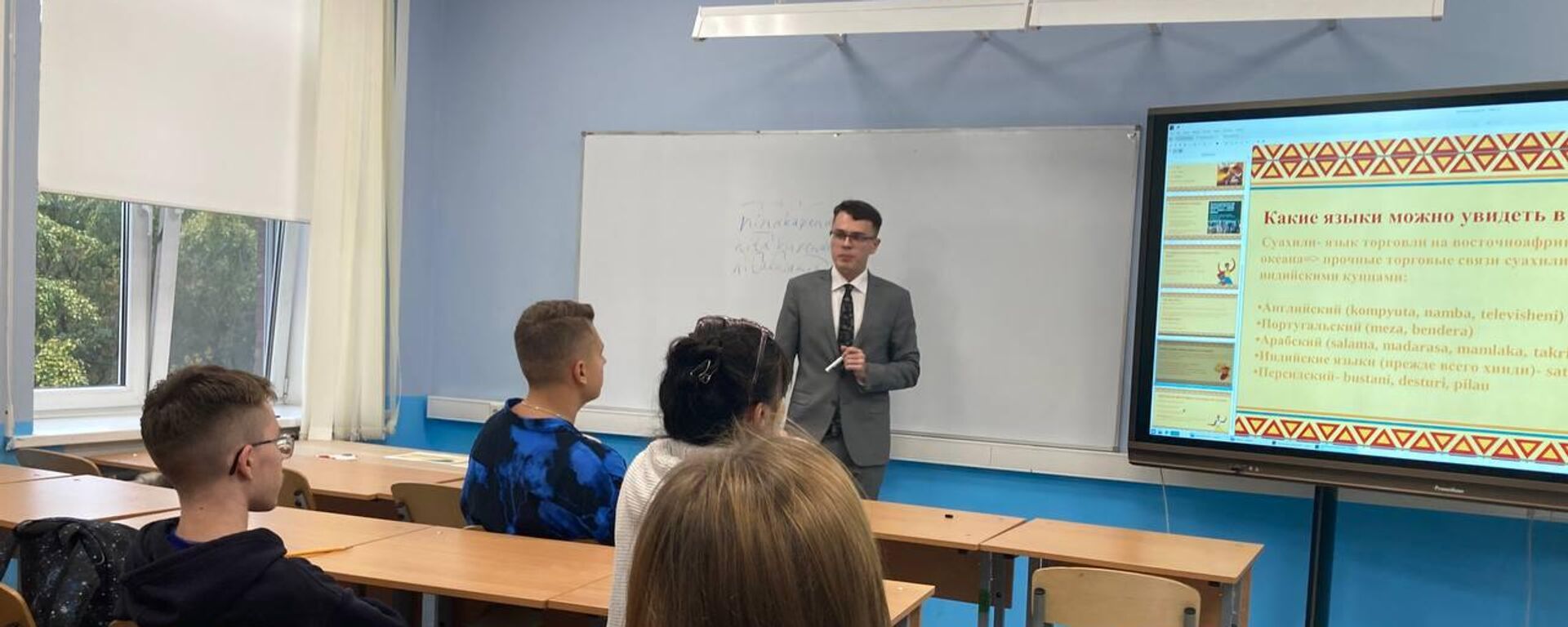https://en.sputniknews.africa/20240707/swahili-takes-center-stage-world-swahili-day-celebrates-african-identity-cultural-empowerment-1067410979.html
Swahili Takes Center Stage: World Swahili Day Celebrates African Identity, Cultural Empowerment
Swahili Takes Center Stage: World Swahili Day Celebrates African Identity, Cultural Empowerment
Sputnik Africa
On July 7, the world celebrates Swahili Language Day, highlighting the importance of this widely spoken African language. Designated by UNESCO in 2021, the day... 07.07.2024, Sputnik Africa
2024-07-07T16:56+0200
2024-07-07T16:56+0200
2024-07-08T17:24+0200
sub-saharan africa
tanzania
moscow
russia
unesco
kiswahili (swahili)
language
east africa
kenya
uganda
https://cdn1.img.sputniknews.africa/img/07e8/07/07/1067411150_0:0:3072:1728_1920x0_80_0_0_d1572f368f47cc998b5b31de770c8065.jpg
As the world celebrates International Swahili Day on July 7, Dr. Gervas Kasiga, a senior lecturer at the University of Dodoma, Tanzania, emphasized the language's growing significance as a symbol of African identity and cultural empowerment.Dr. Kasiga stressed the crucial role of media and technology in promoting and preserving Swahili. "Media has a very big role to play, making sure that our music is promoted in Africa and making sure that our native languages are growing big," he stated.He also underscored the importance of cultural diplomacy in promoting Swahili and African cultures on a global scale. "We need to have cultural missions abroad, like we need to have people like Shaaban Robert, who is a guru in poetry in Tanzania," said Dr. Kasiga. "They need to go beyond the borders, and we can tell our stories abroad."The recognition of an international Swahili language day shows the language's growing prominence on the African continent and globally and is a testament to its cultural and political significance, Ustinia Zlatoverkhovnikova, an intern-researcher at the African Department at the Moscow State Institute of International Relations (MGIMO), told Sputnik Africa.She highlighted the importance of this day and the challenges facing African nations as they promote local languages like Swahili over colonial languages.The rise of Swahili as a potential "flagship of African identity" is a crucial step in dismantling colonial legacies and empowering African nations to communicate on their own terms, she said.However, Zlatoverkhovnikova acknowledged the challenges of promoting a single language amidst the continent's diversity.Zlatoverkhovnikova's personal experience working as an interpreter for a Tanzanian business delegation at the 2nd Russia-Africa Summit in St. Petersburg last year underscored the importance of allowing Africans to communicate in their native tongue.For his part, Dr. Kasiga concluded by emphasizing the deep connection between language and culture. "The importance [of celebrating Swahili Day] is expressing ourselves as Africans, embracing our culture. If we embrace our language, meaning if we embrace Kiswahili, we will have a very big avenue of telling our values, our lifestyles, our real stories, our real Africa."
https://en.sputniknews.africa/20230707/world-kiswahili-language-day-a-language-that-speaks-to-both-past--present-1060396938.html
https://en.sputniknews.africa/20230925/opening-new-doors-for-children-all-about-arrival-of-swahili-language-in-russian-schools-1062347050.html
tanzania
moscow
russia
east africa
kenya
uganda
mozambique
Sputnik Africa
feedback@sputniknews.com
+74956456601
MIA „Rossiya Segodnya“
2024
Muhammad Nooh Osman
https://cdn1.img.sputniknews.africa/img/07e7/04/0a/1058467512_0:0:1280:1280_100x100_80_0_0_ec723833bcbfcaed2e21952965ad99e4.jpg
Muhammad Nooh Osman
https://cdn1.img.sputniknews.africa/img/07e7/04/0a/1058467512_0:0:1280:1280_100x100_80_0_0_ec723833bcbfcaed2e21952965ad99e4.jpg
News
en_EN
Sputnik Africa
feedback@sputniknews.com
+74956456601
MIA „Rossiya Segodnya“
Sputnik Africa
feedback@sputniknews.com
+74956456601
MIA „Rossiya Segodnya“
Muhammad Nooh Osman
https://cdn1.img.sputniknews.africa/img/07e7/04/0a/1058467512_0:0:1280:1280_100x100_80_0_0_ec723833bcbfcaed2e21952965ad99e4.jpg
tanzania, moscow, russia, unesco, kiswahili (swahili), language, east africa, kenya, uganda, mozambique
tanzania, moscow, russia, unesco, kiswahili (swahili), language, east africa, kenya, uganda, mozambique
Swahili Takes Center Stage: World Swahili Day Celebrates African Identity, Cultural Empowerment
16:56 07.07.2024 (Updated: 17:24 08.07.2024) Muhammad Nooh Osman
Writer/Editor
On July 7, the world celebrates Swahili Language Day, highlighting the importance of this widely spoken African language. Designated by UNESCO in 2021, the day aims to recognize and promote Kiswahili, which is spoken by millions of people across the continent.
As the world celebrates International Swahili Day on July 7, Dr. Gervas Kasiga, a senior lecturer at the University of Dodoma, Tanzania, emphasized the language's growing significance as a symbol of African identity and cultural empowerment.
"To us, it means that Swahili, as an African language and a Pan-African language, is growing across borders," Dr. Kasiga told Sputnik Africa. "This simply means that the economic aspects of the language will increase for us, the Swahili speakers. We'll go somewhere we need to reach because Swahili is no longer just a language for daily communication."
Dr. Kasiga stressed the crucial role of media and technology in promoting and preserving Swahili. "Media has a very big role to play, making sure that
our music is promoted in Africa and making sure that our native languages are growing big," he stated.
"We need to have a number of programs in foreign broadcasting corporations like you, Sputnik, you are doing. That's a very big role that you are playing, making sure that our voices are heard and people know that in Africa we have a language which is also powerful and has muscles to conquer the other world," the academician added.
He also underscored the importance of
cultural diplomacy in promoting Swahili and African cultures on a global scale. "We need to have cultural missions abroad, like we need to have people like Shaaban Robert, who is a guru in poetry in Tanzania," said Dr. Kasiga. "They need to go beyond the borders, and we can tell our stories abroad."
The recognition of an international Swahili language day shows the language's
growing prominence on the African continent and globally and is a testament to its cultural and political significance,
Ustinia Zlatoverkhovnikova, an intern-researcher at the African Department at the Moscow State Institute of International Relations (MGIMO), told
Sputnik Africa.
She highlighted the importance of this day and the challenges facing African nations as they promote local languages like Swahili over colonial languages.
"It's an important step for spreading international use of Swahili, giving African countries the opportunity to communicate in their language rather than in post-colonial variants," Zlatoverkhovnikova explained.
The rise of Swahili as a potential "flagship of African identity" is a crucial step in dismantling colonial legacies and empowering African nations to communicate on their own terms, she said.
However, Zlatoverkhovnikova acknowledged the challenges of promoting a single language amidst the continent's diversity.
"It's quite hard to choose one particular language," she said, "but considering the simplicity of Swahili grammar and pronunciation, I assume it has enough potential to become one of the languages of the future."
Zlatoverkhovnikova's personal experience working as an interpreter for a Tanzanian business delegation at the 2nd Russia-Africa Summit in St. Petersburg last year underscored the importance of allowing Africans to communicate in their native tongue.
"If Africans have the opportunity to speak their native language, they will speak it all the time," she concluded.
For his part, Dr. Kasiga concluded by emphasizing the deep connection between language and culture. "The importance [of celebrating Swahili Day] is expressing ourselves as Africans, embracing our culture. If we embrace our language, meaning if we embrace Kiswahili, we will have a very big avenue of telling our values, our lifestyles, our real stories, our real Africa."




